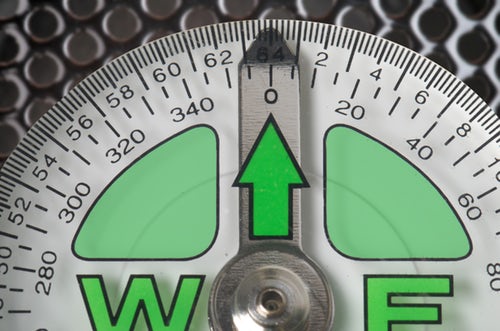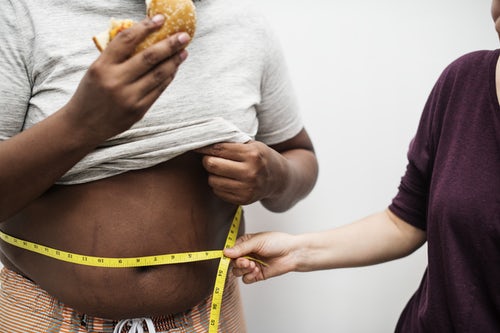Ever been a food calorie counter? Frustrating, isn’t it, recording all of those eaten calories?
For years we were taught that a calorie was a calorie—that they were all the same. So if a relatively active, 30-year old, woman needed to eat 1,800 calories a day to sustain herself, then it didn’t matter what food source they came from.
And then 40 years ago, when preventing heart disease launched into full tilt, we were taught that we needed to avoid fat because fat was the culprit causing heart disease and making our middles balloon.
So what’s the story now?
Calorie counting and recent research—
Through research, scientists are starting to figure out that all calories are not alike, and that some fats are good for you and your heart. And it may not be the number of calories eaten but the type of foods.
What type of foods are the biggest culprits? You probably know.
- Chips
- Pastries
- Cookies
- Soda
- Crackers
- White rice
- Pasta
- Processed foods, especially heavily-processed types, like the kind you find in your pre-made meal section of your grocery store
All of these foods cause a chemical reaction in our bodies that raises the insulin levels and causes the body to store the calories as fat. Dr. David Ludwig, an endocrinologist and researcher at Harvard Medical School, calls insulin the “Miracle-Gro for your fat cells.” Insulin causes the cells to snag the calories and immediately store them as fat cells.
And that quick process leaves you feeling hungry and unsatisfied. And if your body is subjected to this insulin-hiking cycle too often, your metabolism will change gears and start hanging onto the calories it’s stored. That’s not a scenario you want to encounter if you’re trying to lose weight or maintain a healthful diet.
The bottom line? It’s the quality of the calories and not the quantity that matters.
Calorie counting solution?
To break or snap this fat-storing cycle, you’ll need to replace processed carbs (pastas, ice cream, cookies, chips, crackers and snacks) with healthful fats (olive oil, fish, nuts). Yes, fats! And why fats?
Because fats don’t raise insulin so they aid weight loss.
Studies show that people on low-fat diets tend to lose less weight than those on low-carb programs.
And eating good fats, like omega-3s (salmon) and monounsaturated fats (avocados) doesn’t appear to cause weight gain.
The healthful diet Gold Standard—
For years scientists have known that people who follow what is known as the Mediterranean diet—a diet rich in vegetables, good fat and some fish—lose more fat and maintain healthier hearts.
One study showed a 30% reduction of heart disease in the group that were low-carb dieters when compared to low-fat dieters.
What’s the goal?
Your overall goal should be to go for the healthful fat and proteins and slash your sugar.
When designing or planning your meals, aim for real, natural foods that contain fiber, protein and fat. These are satisfying foods that fill you up and curb your hunger. They also result in a slower insulin level rise in your body. Foods like:
- Veggies or whole grains
- Protein like fish and eggs
- Healthy fats—going for the olive oil to sprinkle on your salad rather than a processed, creamy one. Also avocado and egg in this category.
Some of the top food choices would be:
- Fish
- Avocados
- Artichokes
- Broccoli
- Eggs
- Quinoa or Millet
- Almonds and Walnuts
- Lentils
- Yogurt, especially Greek
- Bananas
- Apples
- Oatmeal
- Lentils and White Beans and Black-eyed Peas
But BEWARE the peanut butter and almond butter scoops! Portion control is important, and this is where keeping an eye on some calorie counts may be helpful for you.
Think well-rounded meals. And when selecting proteins, like fish or chicken, it’s best to aim for no more than 3 – 6 ounces, the amount that would fit in your hand. (The number varies depending upon your age, activity-level, and sex. Athletes need more protein for muscle development, protein aids in healing, and, surprisingly, recent research indicates older adults don’t get enough protein.)
Slow down when you eat!
- Think chopsticks. That’s what a dietary specialist told me during an article interview I did with her. You’ll eat more slowly and focus more on your meal.
- And eat like kids tend to eat, minus the cookie binges, of course. They tend to graze and stop eating when they’re full. Don’t force yourself to eat everything on your plate.
- It takes 20 minutes for the brain to register satisfaction and fullness, so scarfing down your meal can override the benefits of this trigger. You’ll end up eating too much before you feel stuffed.
- Converse when eating, not with your mouth full, of course.
- Chew thoroughly so the enzymes released in your mouth can start breaking down the food for digestion. It’s easier on your digestive system.
- Put your fork down between bites, instead of taking a bite and then promptly re-loading your fork. You’ll end up forking in what you’ve packed on it, rather than waiting until you’ve thoroughly chewed what you already have in your mouth. You’ll end up looking like a squirrel when you’re eating.
Learning to be a mindful eater—
Finally, be more conscious of how your body feels and what it’s telling you about eating.
Don’t just eat because the schedule indicates it’s time to eat. Eat when you’re really hungry, when your body is telling you that it needs nourishment. You’ll feel more satisfied and more in control, which is usually what everyone strives for anyway.
So discard your calorie counting cards!
One a side note: I want to give a Happy Birthday shout-out to my baby boy, who turns 24 today! What a miracle and blessing he is to me!
Beginning next Wednesday, Workout Wednesdays will be going on hiatus until April 3, when I’ll be back with healthful body tips, a way for you to sign up to receive my posts on a regular basis, and a freebie for your generosity in wanting to stay connected!
I’m undergoing knee surgery this Friday, March 1, (as long as I can rid myself of this nasty cold), and I will be spending March recuperating.
Please mark your calendars for April 3 to re-join me!
Until then, have fun trying new foods and meals with your rediscovered fats and proteins. I know you’ll be happy you did!
Blessings,
Andrea
“Certainly there was an Eden….We all long for it, and we are constantly glimpsing it.” —J.R.R. Tolkien

